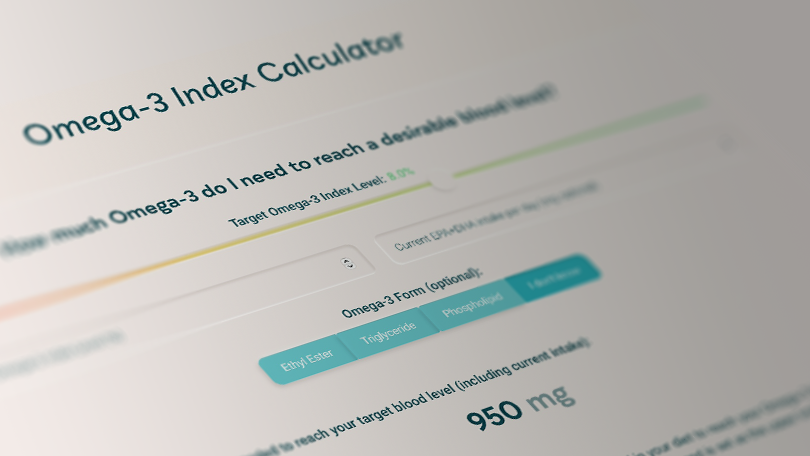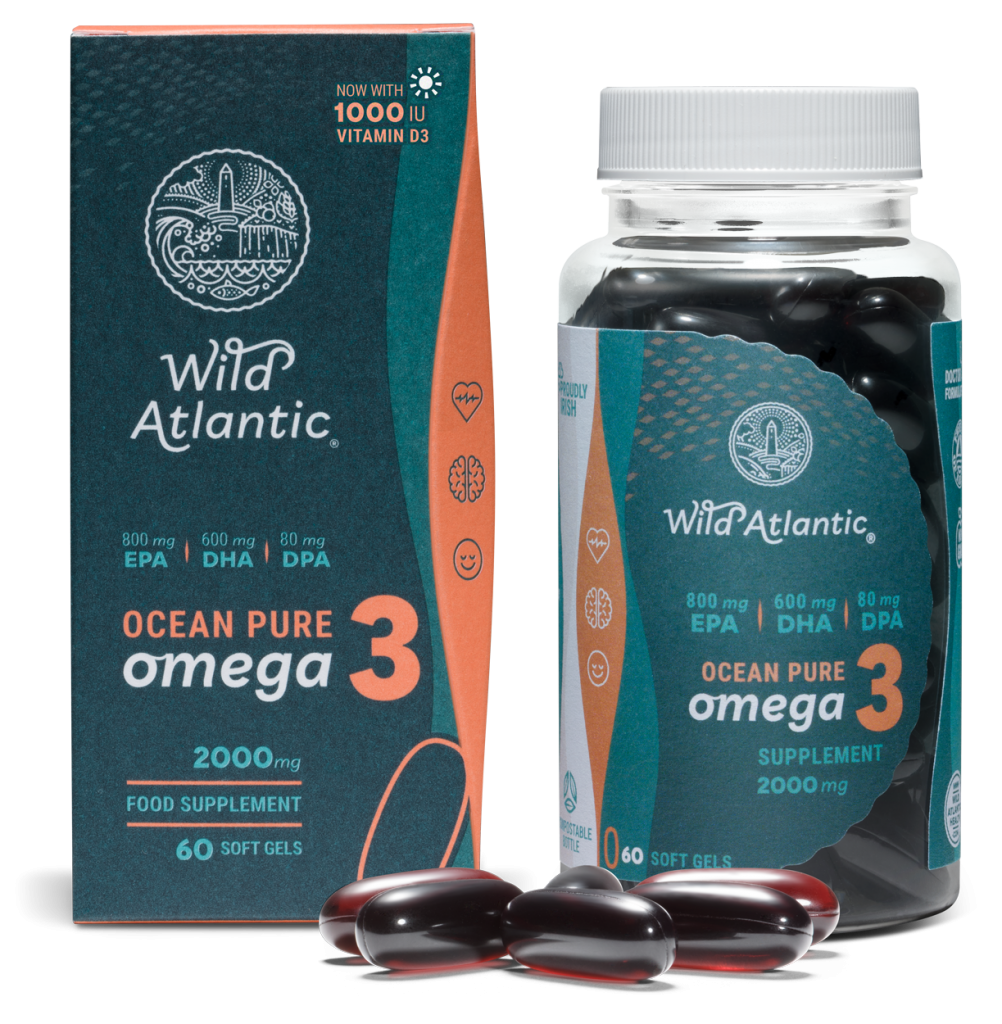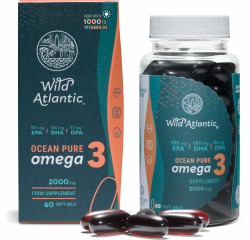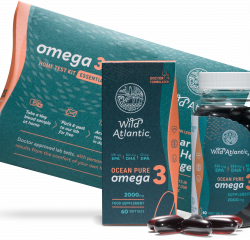We recently celebrated ‘Global Omega-3 Day’. It served as a reminder for us to sear up some salmon, eat those anchovies and take copious amounts of fish oil more regularly.
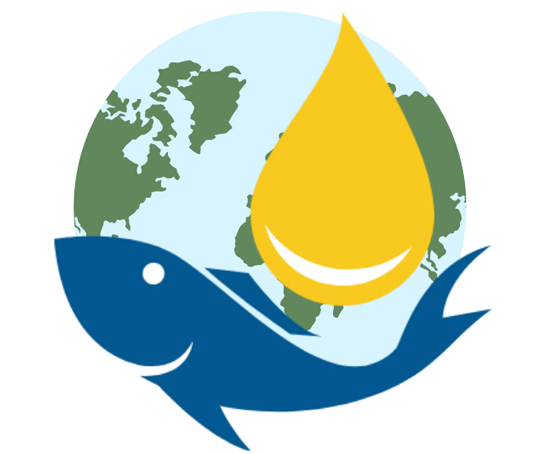
In Ireland, we often refer to Fridays as Fish Fridays. That’s because people abstained from meat and ate fish on Fridays, and the tradition continued from Ash Wednesday and each Friday through Lent up to Good Friday. Historically this was done as a sacrifice and reminder that acknowledged Jesus’ sacrifice on the Cross, and Lent was a season of intense preparation, abstinence and fasting.
For older generations, the fish was bland white fish or smoked haddock with potatoes and a bit of butter and was scarce for those who lived inland. Interestingly salmon at the time was seen as a luxury, and scampi and fish & chips were always a special treat. This created a bit of a love-hate relationship with fish.
In the modern day, an Irish in-store survey conducted by UCD found that close to 1 in 5 customers (19% of 371 customers interviewed) did not eat or buy fish at all. However, in a recent Newstalk interview with Pat Kenny, the CEO of Bord Iascaigh Mhara (BIM), Caroline Bocquel said, “A new generation is coming through who sees fish as a sustainable food source, low in fat and full of vitamins which is good for you.”
Today 80% of people worldwide are not getting enough Omega-3 EPA and DHA in their diets, and in countries like the US with a processed food diet, it’s as high as 95%.
Consumption of fish has increased fivefold since the 1960s. On a per capita basis, the average Irish person is estimated to consume 22kg of fish per annum, slightly lower than the EU average of 24 kg, with Iceland leading the way at 92 kg, followed by the Nordics and Portugal. (EU Fish Consumption)
Following the famine in 1856, the Cork Constitution newspaper published an article on the role of fish in the diet. It suggested that ‘except in some impoverished countries fish is not a primary article of food or an absolute necessity of life’.
Today we have a far greater understanding of the nutrition and health benefits of fish and Omega-3. EPA and DHA Omega-3s are among the most studied nutrients, with more than 45,000 published research papers. The overwhelming evidence based on human clinical trials suggests that EPA and DHA Omega-3s help support heart, brain and eye health throughout life, and prenatal/maternal health, including supporting a healthy pregnancy and early childhood development.

Worldwide levels of Omega-3
The world OMEGA-3 map below, based on research by Stark et al. (1), highlights how most of the population have deficient levels of Omega-3s measured by the Omega-3 index in their blood, and Ireland comes up with low levels in this research.
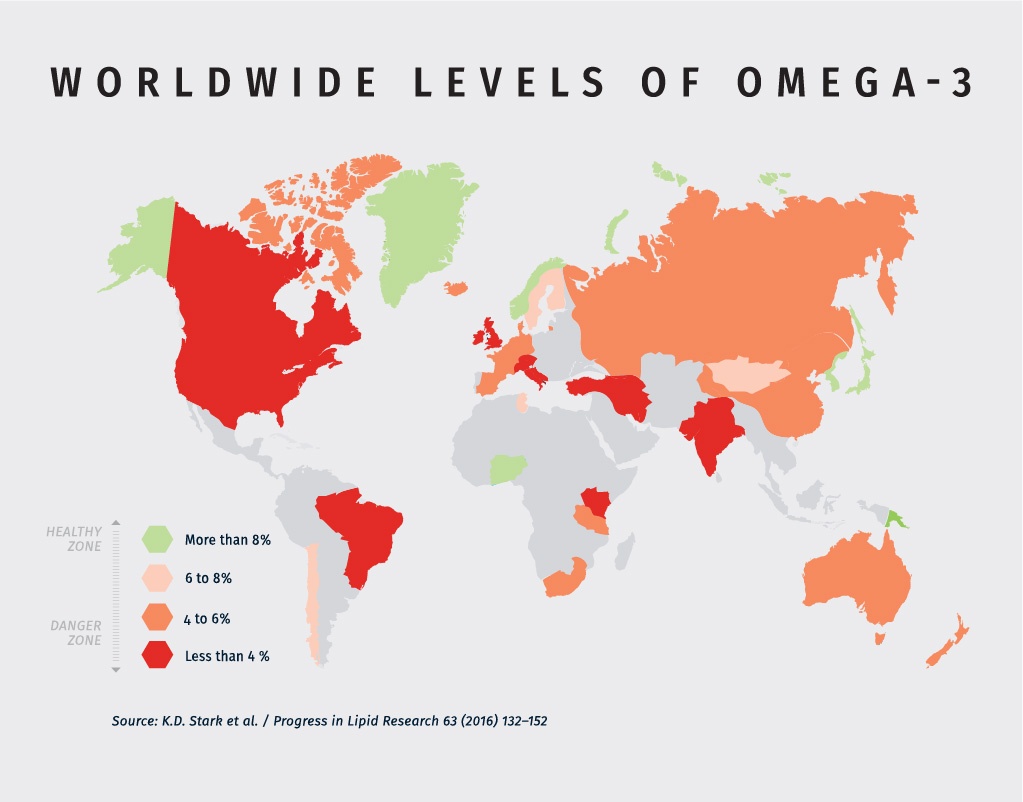
The Omega-3 index is a measure of the percentage of total fats in red blood cells that are EPA and DHA. Prior studies have determined that an Omega-3 index of around 8% is optimal, whereas 4% or lower is the danger zone. Most people consuming a modern Western diet have a far lower Omega-3 score. (2, 3)
A recent study by the Mayo Clinic (4) found that EPA and DHA consumption may reduce the risk of coronary heart disease, particularly in those people with high triglycerides and LDL cholesterol. In addition, EPA and DHA help to maintain healthy blood pressure and triglyceride levels.
The Omega-3 test provides a clear picture of your Omega-3 status and can help identify critical health risk factors in advance. Wild Atlantic Health is the first company in Ireland to pioneer advanced Omega-3 home testing. It enables people to assess their risk of sudden cardiac death with precision and then take proactive steps to lower the risk in only a few months significantly.
A higher Omega-3 Index score has been linked to a lower risk of sudden cardiac death, increased life expectancy, and improved brain health.
The Western, processed food diet is crammed with pro-inflammatory Omega-6s, especially in ‘vegetable’ seed oils which are highly inflammatory and why Omega-3 is so important as an anti-inflammatory to achieve a healthy balance.
What are the different types of Omega-3s?
Omega-3 is an essential fatty acid, and our bodies can’t make it, and we can only get high levels from eating fish or taking quality supplements high in marine Omegas, including EPA, DHA or DPA. DPA is often called the “Missing Omega” and acts as a storage pool for EPA and DHA while improving lipid metabolism and resolving inflammation.
ALA is an Omega-3 fatty acid in plant foods like kale, spinach, flax and chia seeds. However, the conversion process is inefficient in humans, with only a tiny % converted into EPA and even less into DHA. This is why vegans and vegetarians tend to have a low Omega-3 index.
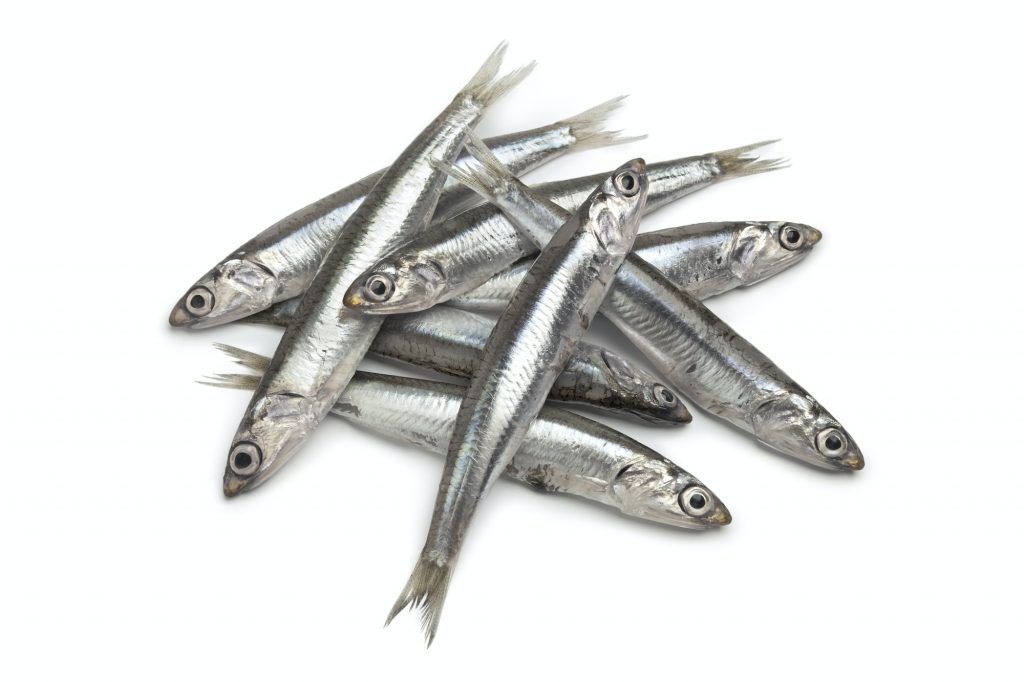
Reasons to Test and Take Omega-3s
- A low Omega-3 Index is just as strong a predictor of early death as smoking. (5)
- People with low Omega-3 Index scores have a 90% lower risk of sudden cardiac death. (6)
- A 2021 study found that having higher levels of Omega-3 also increases life expectancy by almost 5 years. (7)
- Another study found that having the highest Omega-3 blood levels, compared to the lowest, was associated with a 34% lower risk of death from any cause. (8)
- The benefits of Omega-3s in the brain extend to mental health. Studies show that lower fish oil or omega-3 intake is associated with a greater prevalence of depression.(9) (10) (11) (12) (13)
- In a 2020 study, pregnant women—who are at risk for post-partum depression—were randomised to take either Omega-3 fatty acids (containing 1,206 mg EPA and 609 mg DHA) or a placebo. Those taking the fish oil saw a decrease in symptoms of depression, while no change was observed in the placebo group. (14)
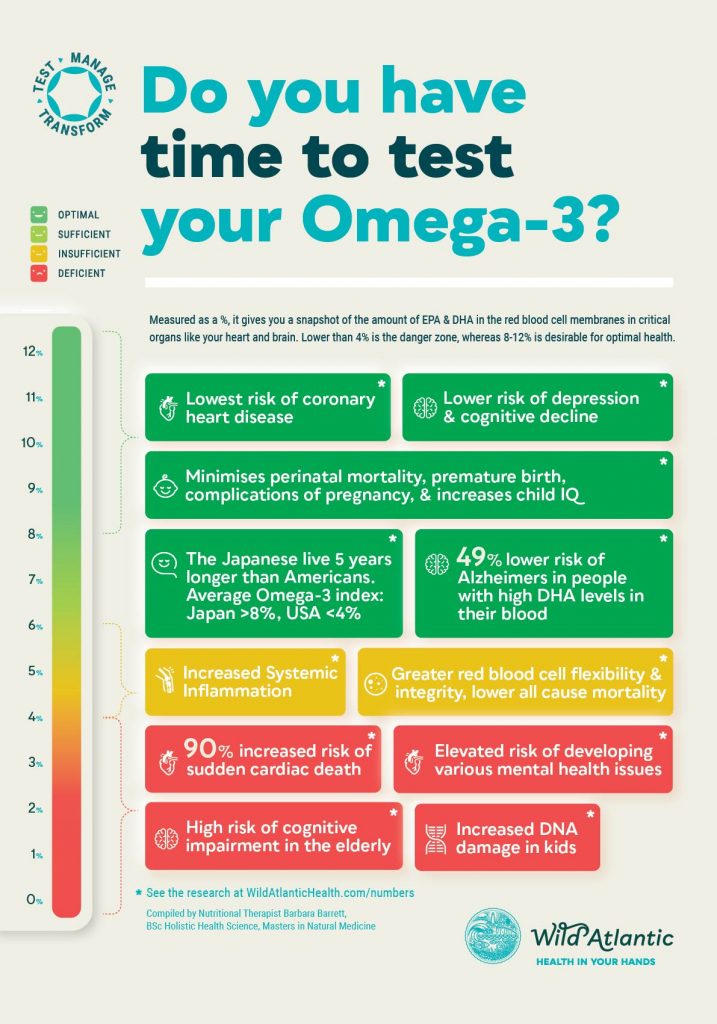
How much Omega-3 should we be taking?
Given our low consumption of fish Ireland still rates relatively low in the Omega-3 Index, although there is no data or definitive study on the Irish population. This analysis by Professor Ronan Gormley at UCD provides interesting insights into the Omega-3 Index and Irish fish consumption. (15) Since we launched in March 2022, we have completed hundreds of Omega-3 tests and have seen Omega-3 Indexes range from a low of 3% up to 12.3%.
To improve the Omega-3 Index, people need to eat more fish, and on a positive note, the Irish government earmarked €2 million in a recent plan to get, among other things, the Irish to eat their own fish. The move, in conjunction with BordBia, has been set up to support the local seafood fishing industry.

A standard serving of fish is about 113 grams by weight. Fatty fish – mackerel, anchovies, salmon and herring – tend to have higher EPA & DHA levels. The acronym MASH is a useful way to remember which fish is the highest. If you eat fatty fish twice per week, your Omega-3 daily dose average would be about 250-500mg.
Supplementation with Fish Oil is required to get your Omega-3 into the optimal zone (Omega-3 Index of 8-12%).
From a study in the US, for 50% of the population to achieve an Omega-3 Index of 8%, ~1,300 mg per day of EPA+DHA was needed. Approximately 1,900 mg per day of EPA+DHA was needed for 90% of the population to achieve an Omega-3 Index of 8%. (16)
The European Food Safety Authority (EFSA) has concluded that intakes of up to 5 grams of EPA+DHA are safe and are needed to reach claimed effects such as maintaining blood pressure and triglyceride levels.
Omega-3 essential fatty acids are vital for whole-body health and wellness.
Besides significant heart health benefits, research indicates higher Omega-3 levels can also help with cognitive health, depression, ADHD, lowering Alzheimer’s risk, and lowering the risks of pregnancy complications while improving babies’ health and IQ. We’ve developed an easy-to-use Omega-3 chart with research references relating to the risk factors and health benefits of Omega-3 – see Omega-3 thermometer.
Knowing your Omega-3 index is just as, if not more important, than knowing your cholesterol level or blood pressure, and ‘fixing’ the Omega-3 index is much easier – not to mention cheaper and safer than treating all those other risk factors. Improving your Omega-3 Index level is easily solved by eating more fish and taking a high-quality, high-dose Omega-3 supplement.
